Vilifying the young forward is the easy option for those unwilling to ask the hard questions about what is really happening at LFC, writes Sean Duffy.

The timing could scarcely have been worse for FSG. On the day that saw the brightest prospect at their Liverpool venture declare his intention to leave the club, the very concept upon which their ownership model has been based appears to have been blown out of the water.
Michel Platini’s declaration that FFP regulations are to be eased will have been met with much greater alarm in Boston than the news that Raheem Sterling has decided he no longer wants to play for the club.
First to Sterling. There has been no little blowback from the statement leaked yesterday by the player’s representatives, confirming what many feared – that he sees his future away from Liverpool. Fans and ex-players have been heavy on incredulity; sneering at the audacity of the little upstart, and of course the role being played by his sinister agent.
Certainly, Sterling’s actions in all of this have left a sour taste. His interview with the BBC last month served as an opening salvo in what appears to be a rather cynical ploy on the part of the player and his agent to engineer a move away from the club.
This latest move, coming just before the final game of the season, appears to be an even more brazen attempt to drive a wedge between the player, the manager and the supporters. Yet in the rush to castigate Sterling in this rather tasteless squabble, it appears that a number of glaringly obvious points are being overlooked.
The first is to remember that Sterling is a London-born kid of 20. Ostensibly, he has no emotional bond with the club. Of course, supporters expect that any player who dons the red shirt will be immediately infused with a love of the club, the ground and the fans. In many instances – and with many players down the years – this has indeed proven the case. Yet in Sterling’s case, this does not necessarily stand to reason.
Three years ago, when Sterling was holding out for a better contract, there was no shortage of Liverpool fans lining up to abuse him for his apparent greed. He should sign the new deal, put his head down, forget about the money and concentrate on his football. Who was he to hold the club to ransom? Sound familiar?
In the end, Sterling did sign that contract, albeit on terms of £35,000 a week, which effectively succeeded in merely kicking the can down the road. In this latest wrangle, fans and pundits alike have been quick to ask the question: what has he done in the game? Comparisons have been made with Scott Sinclair and Aaron Lennon. These types of reactions bear all the hallmarks of the jilted lover proclaiming “I never wanted her anyway.” (Ed note: Like Brendan’s claim he never wanted Depay then.)
In reality, Sterling and his representatives have long had a belief in what the player’s potential was, both from a playing and earnings perspective. The ugliness of this affair has masked some basic truths about the strategy being employed here by Liverpool.
Let’s assume for a moment that it is all about money. Other clubs around England and Europe can, and will, offer him more. If we take Sterling’s side of the argument; that he wants to play at the highest level – those same clubs can offer him that as well.
With regards to future recruitment, Sterling watched Luis Suarez, depart for Barcelona last summer. Suarez went on to form the most devastating attack in a generation with Leo Messi and Neymar. Liverpool replaced him with Rickie Lambert and Mario Balotelli.
So what is it exactly that Liverpool are offering him here? Less money, inferior standards of football, inferior teammates and a management and payment structure which seems completely incapable of devising a strategy that can attract and keep the best talent.
Much of the sneering with regards to his contribution to date has been coloured by the player’s performances in the past two months. That is an extremely short-sighted approach when appraising the worth of such a talented player.
Such was the ineptitude of the aforementioned signings that Sterling has spent much of the season trying to fill in at centre forward, being dry humped by centre halves twice his size, back to goal, 20 yards outside the opposition penalty area. With the team malfunctioning around him, it is hardly surprising that his performances dipped.
There are three questions that should be raised with respect to Sterling’s form. Has the player become a victim of the upheaval at the club this season? Has the player let his own standards drop intentionally in a bid to underline that disaffection? And is that disaffection indicative of a wider problem in the squad with regards to the role of Brendan Rodgers as manager?

The BBC’s Ben Smith reported on Monday that Sterling may have been minded to sign a new deal if there was the prospect of a change of manager at the club. While such a sentiment has understandably made the blood boil, it does raise the question about how a player who once seemed to be Rodgers’ protégé of is now apparently intent on leaving the club because of the manager’s continued presence.
The disintegration of Liverpool’s season would suggest that all is not well at Melwood. Of course, Sterling himself is in no small part to blame for that. Yet it cannot be argued that the squad suffered from an alarming disintegration of morale at two separate times this campaign, periods which effectively encompassed two thirds of the season. Perhaps it is naive to merely castigate the player for being unhappy when there appears to be many other factors amiss with the administration of the club.
Liverpool’s absentee landlords have thus far been given a free ride from supporters, mainly on account of not being Tom Hicks or George Gillett. Their commitment to redevelop Anfield and to run the club on a frugal footing has been met with something approaching stoic approval from fans. However, the reality is that this model is never going to furnish Liverpool supporters with the glory they crave. Even before Platini’s shameless U-turn, FSG’s model was effectively about trying to build success on the cheap.
Yet the model they have employed at Liverpool is one which is based on extracting market value once inexpensive youth products have been developed. In the case of Sterling, that potential has already been identified and is being sought by the top clubs. John W Henry and Tom Werner can hardly expect to tug on non-existent heart strings, with misguided notions of what loyalty entails once a player has realised his market value, especially when they appear intent on running the club in a manner which insists upon rational market behaviour.
That Liverpool were not willing to pay the player what he could earn elsewhere is indicative of where the club’s ambition currently lies. Hoping the player would be content to remain on inferior terms to those being offered elsewhere smacks of blind negligence. Liverpool and FSG should have had Sterling tied down to a long term deal long ago. His imminent departure is the direct consequence of the constraints of their own approach, and an unwillingness to adequately assess the value of one of their own assets.

Liverpool are now faced with the reality of losing their brightest prospect since Steven Gerrard emerged into the first team 17 years ago. Sterling will almost certainly go on to be one of the finest players in Europe over the next decade. Whether that is under Rodgers, Manuel Pellegrini or anyone else is irrelevant. The player has the raw materials to be great.
Liverpool have known that for some time, yet the mechanisations at every level of the club appear to have led us to this juncture. The effrontery with which the player has conducted himself has understandably seen a united front of anger develop against the player. Yet in uniting against Sterling, many supporters are overlooking some crucial nuances in the debate.
This was a situation Liverpool should have had control over. They have lost control of it, and in so doing, appear to have further cemented the perception of the club as also-rans in the context of the elite.
This week’s announcement by UEFA that FFP regulations will be softened effectively leaves the whole premise behind the FSG model in ruins. It would be outrageous had there been a viable strategy for success in place to begin with.
Sean Duffy
Follow @seansduffy
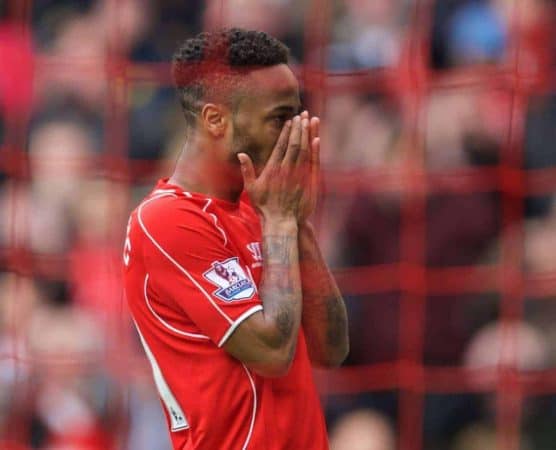



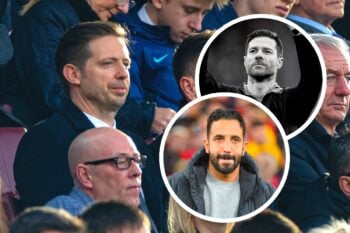
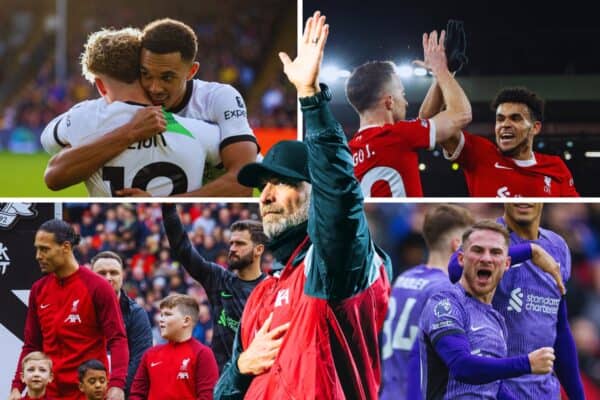


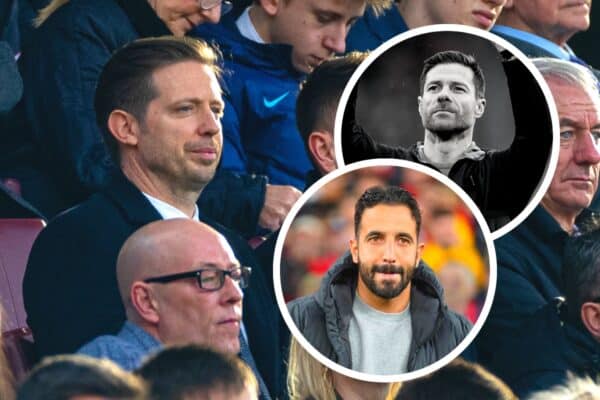
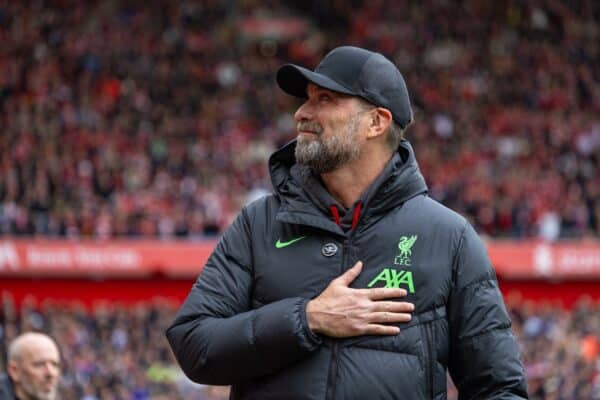




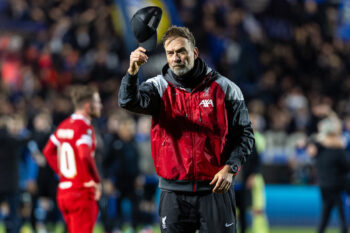
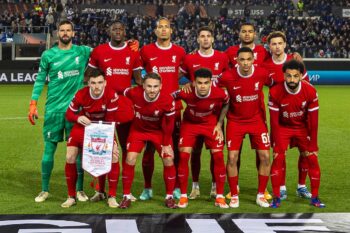

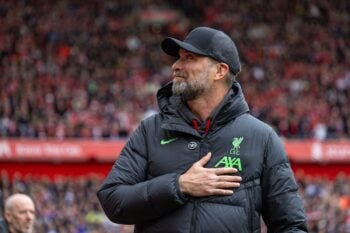
Fan Comments